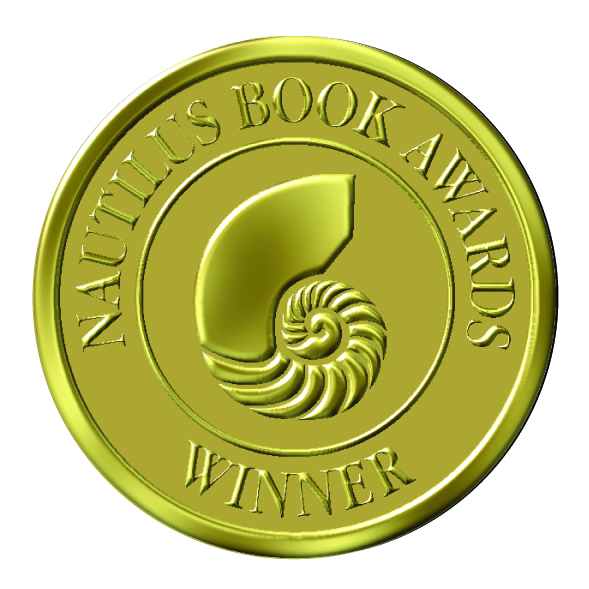Habitat Threshold
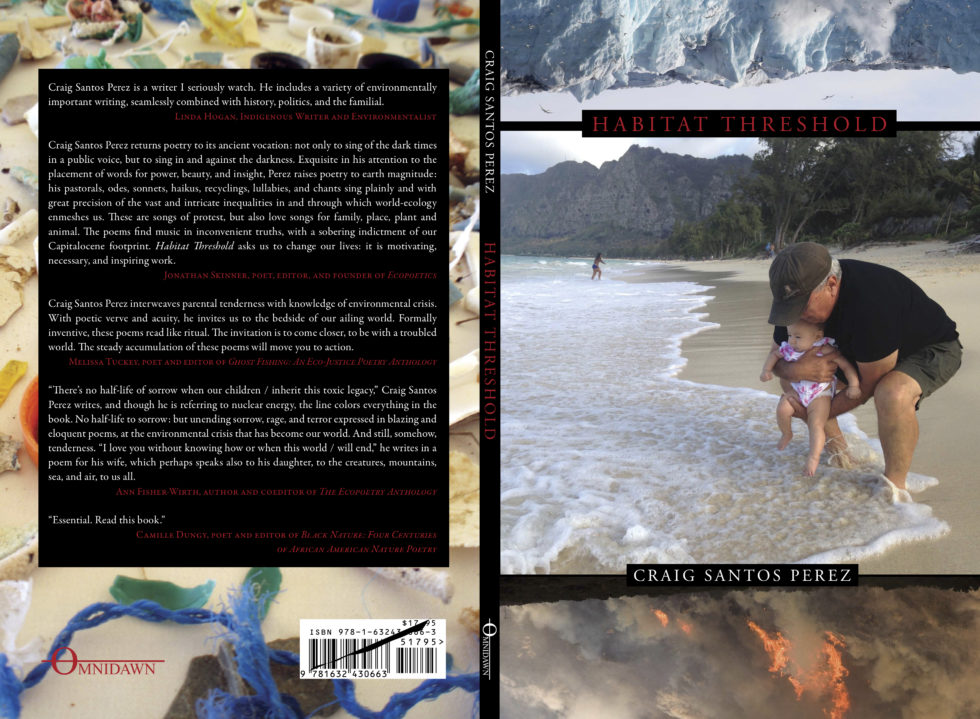
*
Purchase Here
*
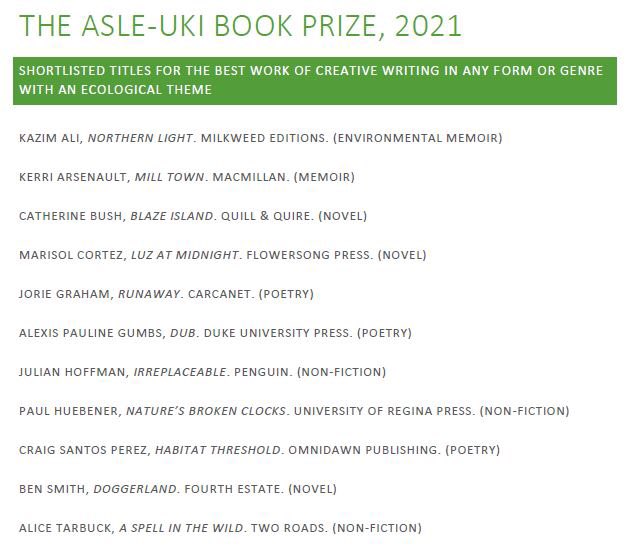
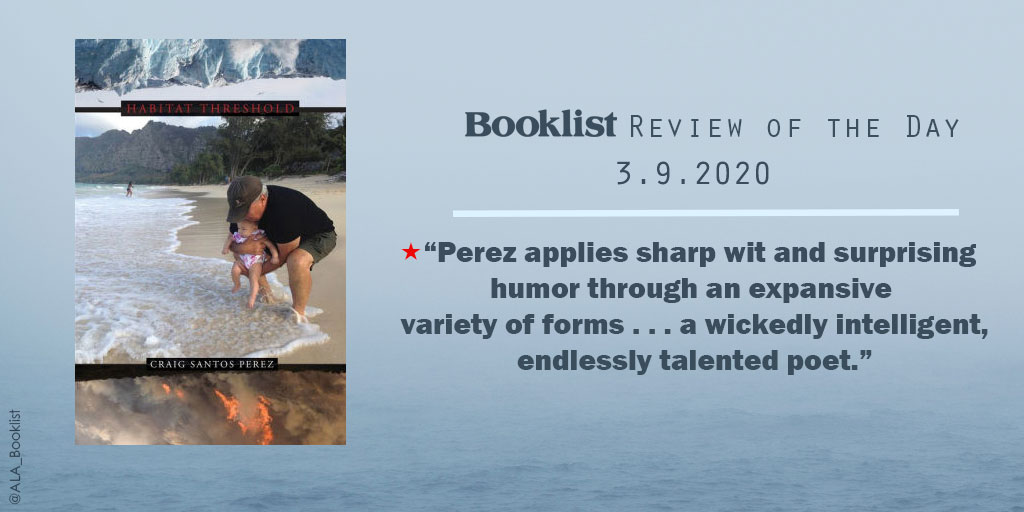
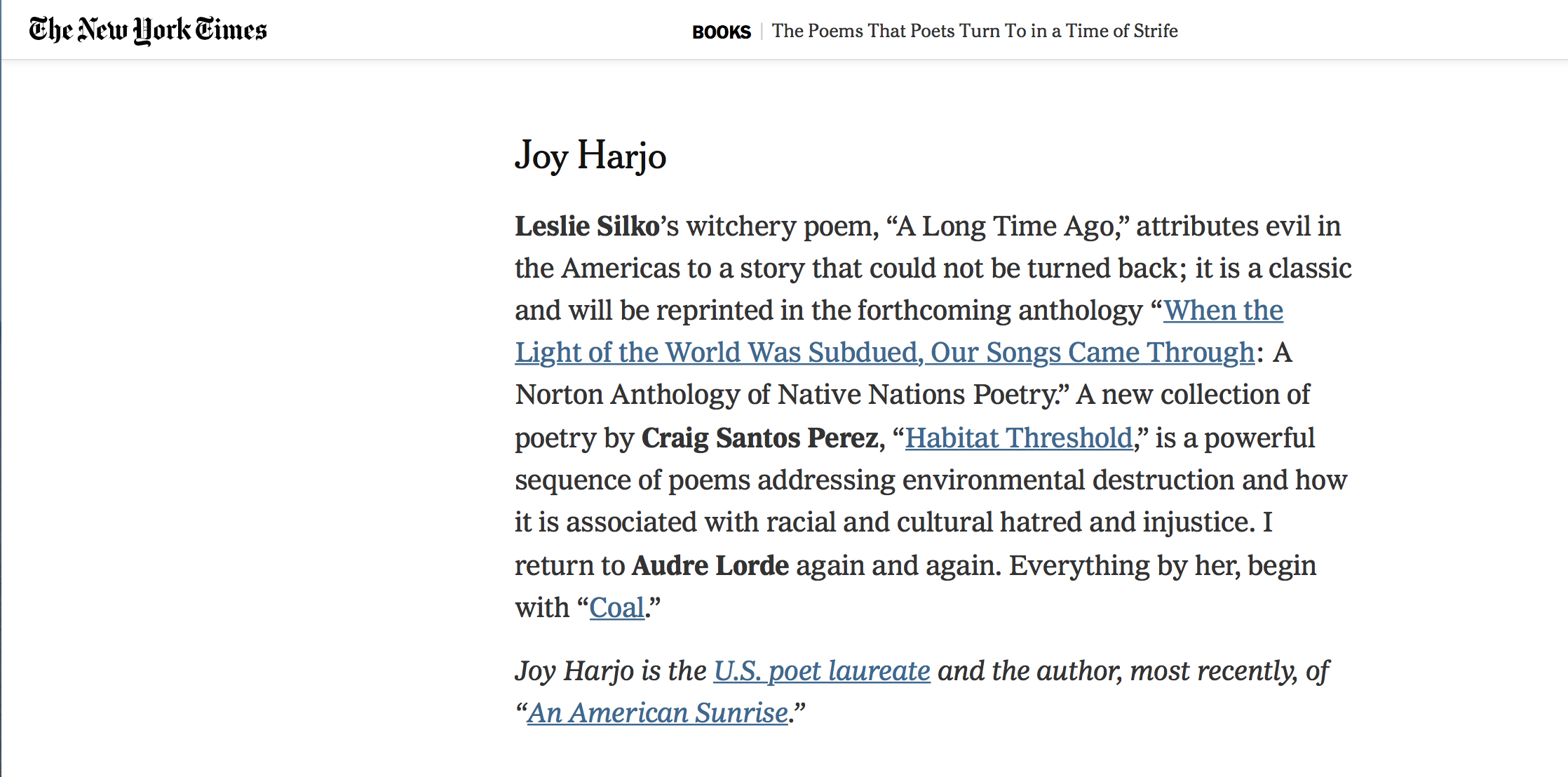
Media & Reviews
- Book Review in The Michigan Daily (2022)
- Book Review in The Georgia Review (2021)
- BBC Cultural Frontline (2021)
- Feature in The Pacific Daily News (Guam, 2021)
- Book Review in ISLE: Interdisciplinary Studies in Literature and Environment (2021)
- Recommended Poetry Collections from Camille Dungy, Orion Magazine (2021)
- Book Review in Open Books New and Noteworthy (2020)
- Book Review in Singapore Unbound (2020)
- Book Review in Colorado Review (2020)
- Book Review in The Bookfish (2020)
- Joy Harjo Recommendation, New York Times (2020)
- What to Read When you Want to Celebrate APIA Heritage Month (Rumpus, 2020)
- A Reading List for Asian/Pacific American Heritage Month (CLMP, 2020)
- 10 Books to Read this Asian Pacific American Heritage Month (Kundiman, 2020)
- Jacket2 (2020)
- Kenyon Review (2020)
- Top Spring Poetry 2020 from Library Journal (2020)
- Must-Read Poetry Books 2020 from The Millions (2020)
- Best Books of 2020 from Library Journal (2020)
- Most Anticipated Books of 2020 from Big Other (2020)
- Starred Review from Booklist (March 2020: Spotlight on the Environment and Sustainability)
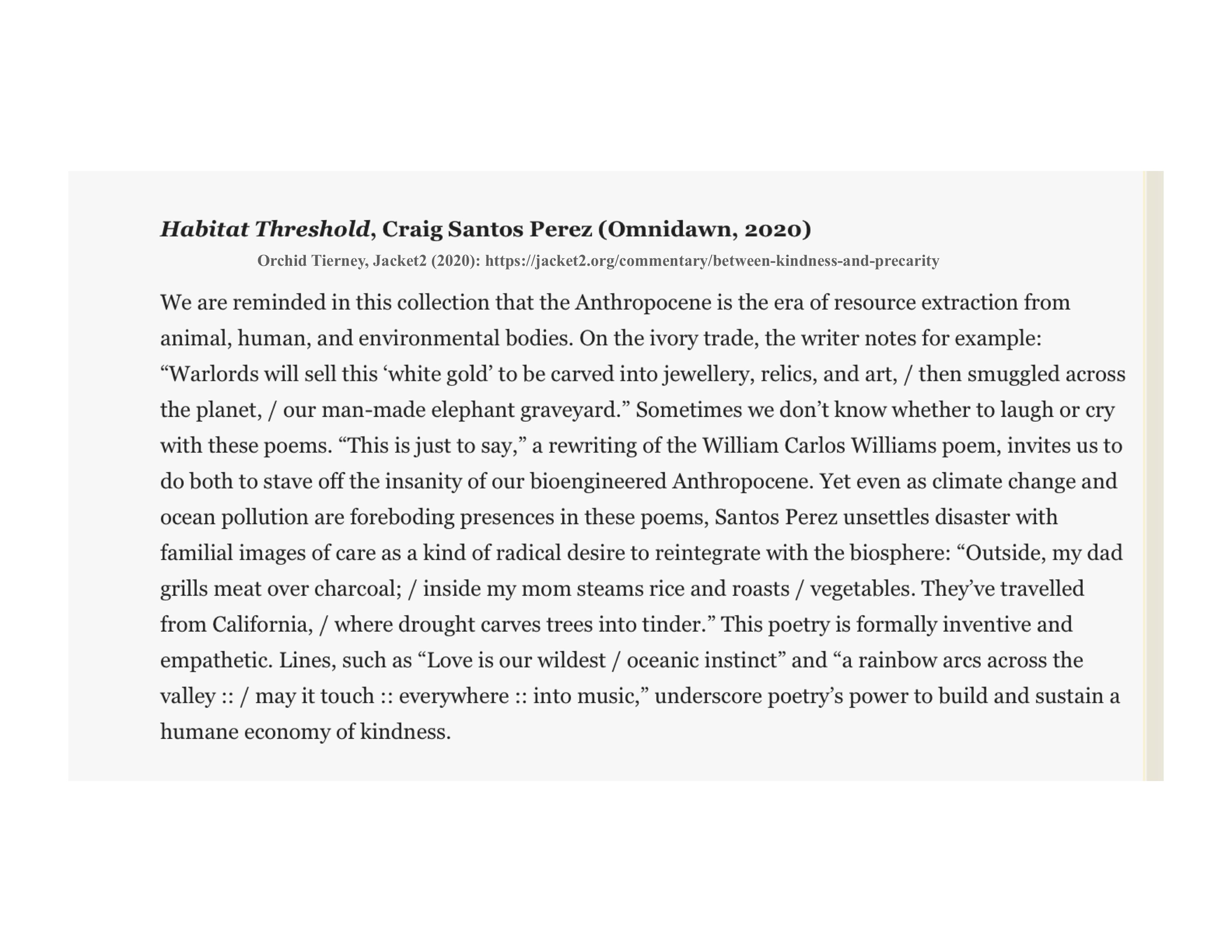
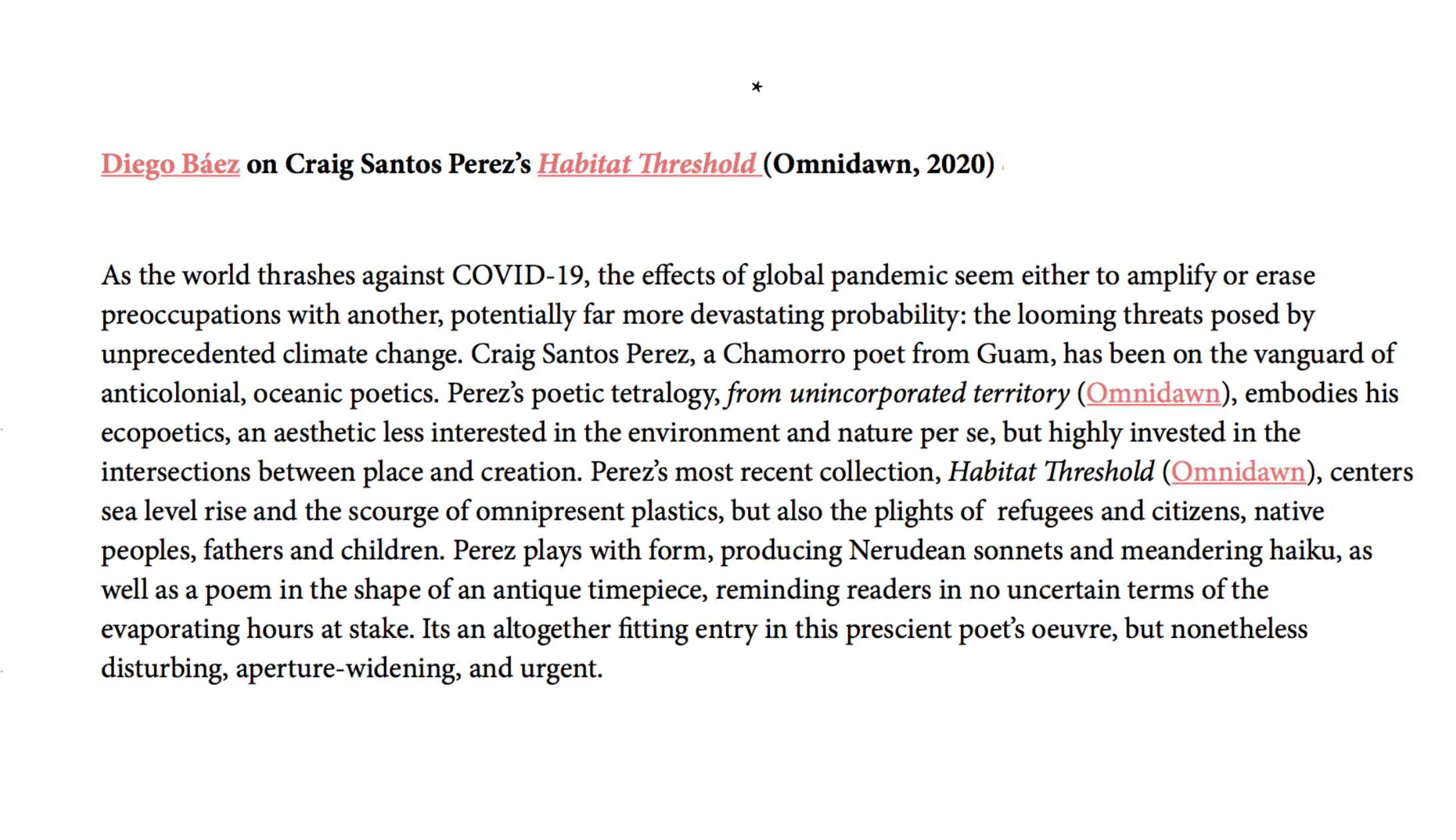
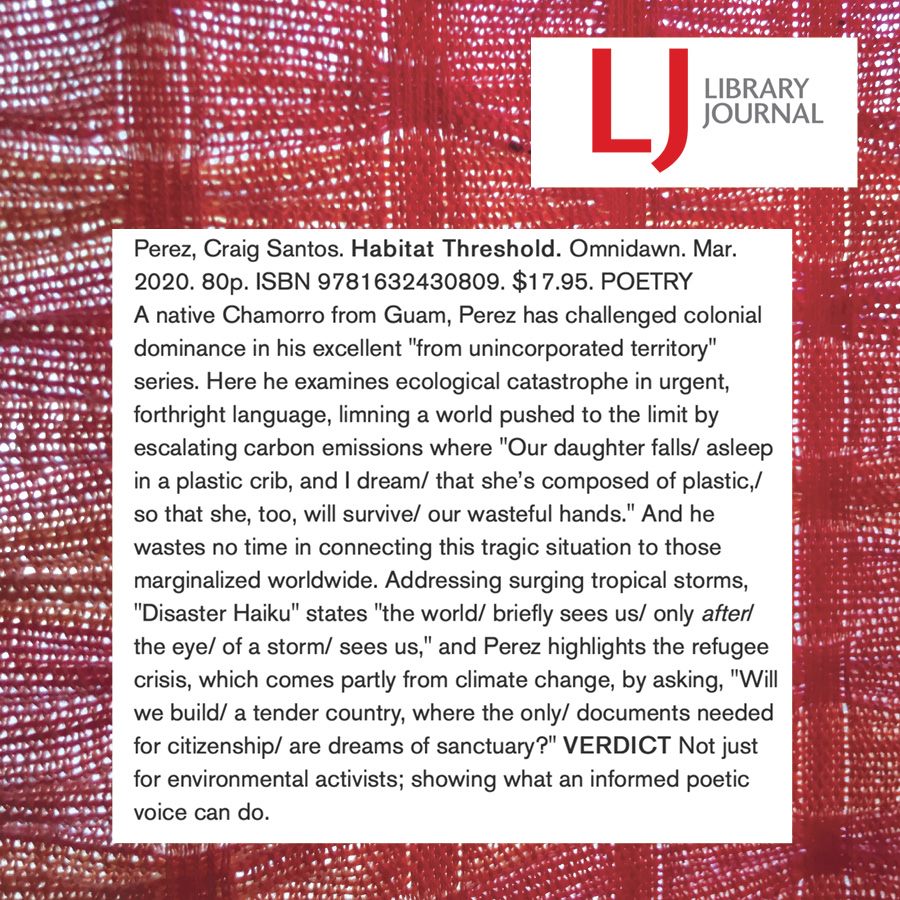
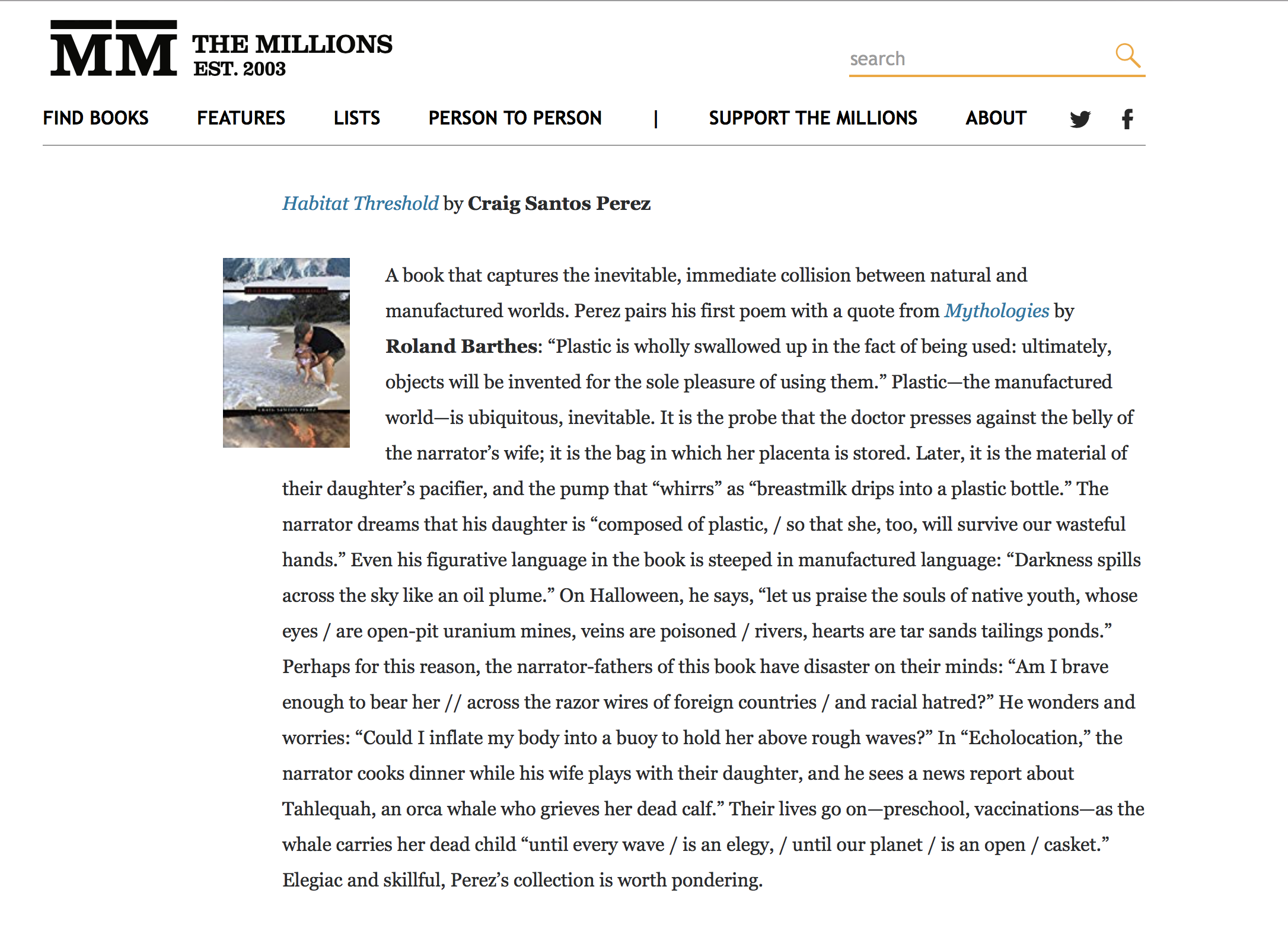
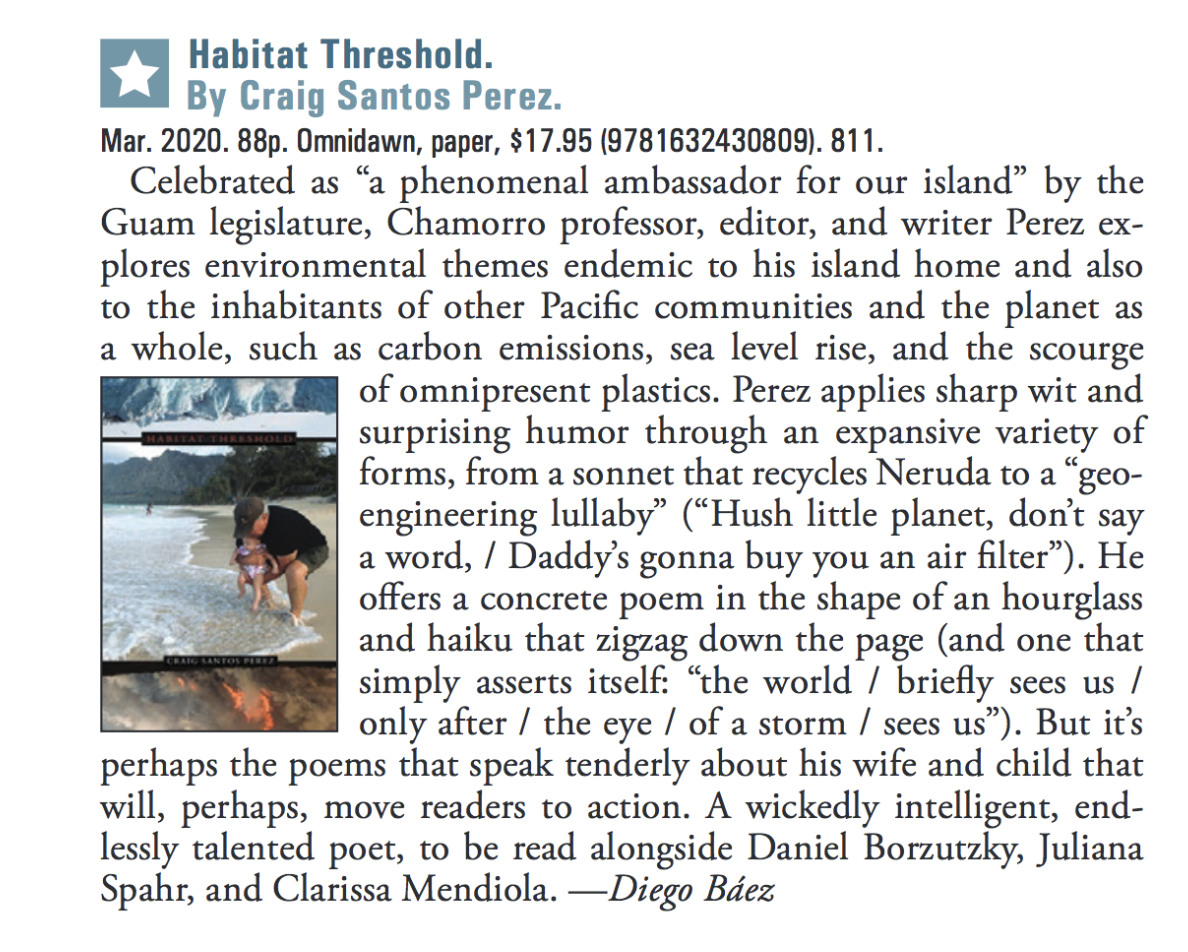
Advance Praise:
“Craig Santos Perez is a writer I seriously watch. He includes a variety of environmentally important writing, seamlessly combined with history, politics, and the familial.”
–Linda Hogan, Indigenous Writer and Environmentalist
Craig Santos Perez returns poetry to its ancient vocation: not only to sing of the dark times in a public voice, but to sing in and against the darkness. Exquisite in his attention to the placement of words for power, beauty, and insight, Perez raises poetry to earth magnitude: his pastorals, odes, sonnets, haikus, recyclings, lullabies, and chants sing plainly and with great precision of the vast and intricate inequalities in and through which world-ecology enmeshes us. These are songs of protest, but also love songs for family, place, plant and animal. The poems find music in inconvenient truths, with a sobering indictment of our Capitalocene footprint. Habitat Threshold asks us to change our lives: it is motivating, necessary, and inspiring work.
–Jonathan Skinner, poet and editor of Ecopoetics
Craig Santos Perez interweaves parental tenderness with knowledge of environmental crisis. With poetic verve and acuity, he invites us to the bedside of our ailing world. Formally inventive, these poems read like ritual. The invitation is to come closer, to be with a troubled world. The steady accumulation of these poems will move you to action.
–Melissa Tuckey, poet and editor of Ghost Fishing: An Eco-Justice Poetry Anthology
“There’s no half-life of sorrow when our children / inherit this toxic legacy,” Craig Santos Perez writes, and though he is referring to nuclear energy, the line colors everything in the book. No half-life to sorrow: but unending sorrow, rage, and terror expressed in blazing and eloquent poems, at the environmental crisis that has become our world. And still, somehow, tenderness. “I love you without knowing how or when this world / will end,” he writes in a poem for his wife, which perhaps speaks also to his daughter, to the creatures, mountains, sea, and air, to us all.
–Ann Fisher-Wirth, poet and co-editor of The Ecopoetry Anthology
“Essential. Read this book.”
–Camille Dungy, poet and editor of Black Nature: Four Centuries of African American Nature Poetry
